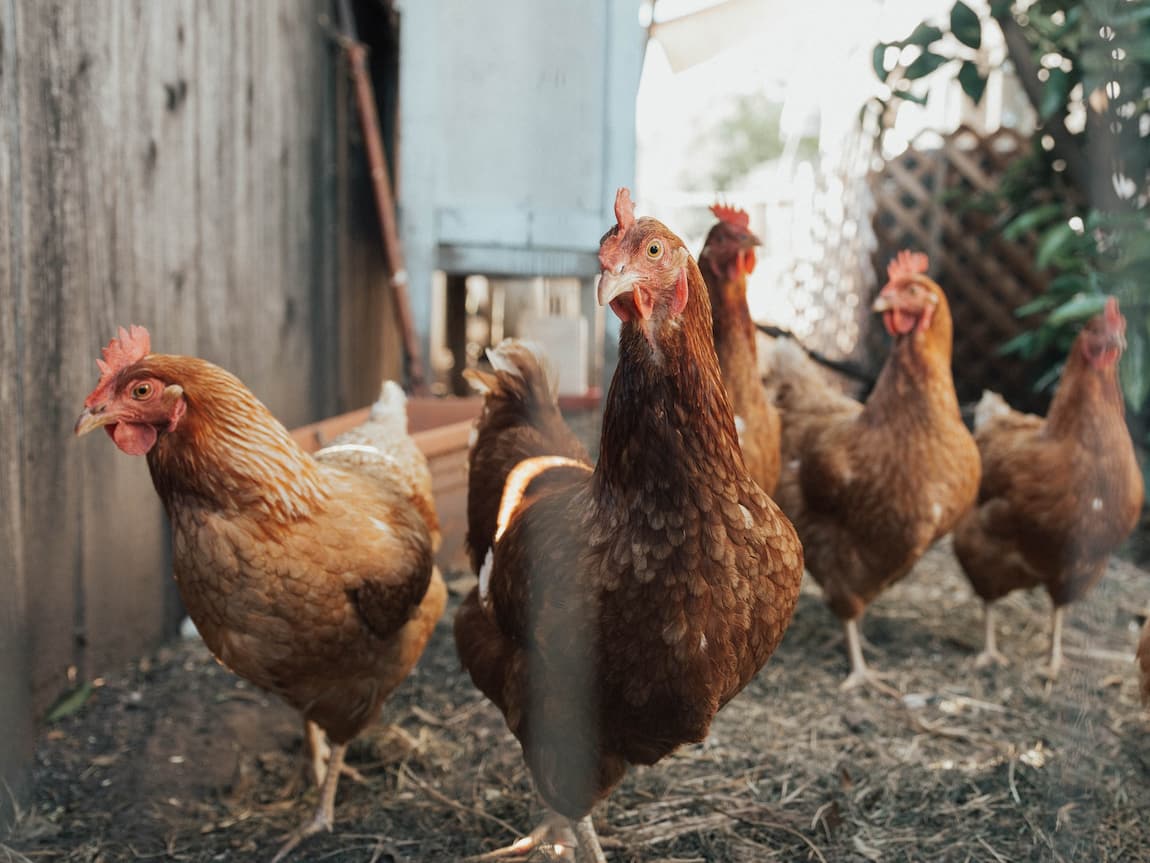Chickens may not sleep as deeply as humans do, but they do need rest in order to stay healthy and productive. To properly understand the sleep habits of chickens, it’s important to take into account the different states of sleep that chickens enter, the impact of light and temperature on sleep, how the sleep of chickens in captivity differs from those in the wild, and the benefits of ensuring adequate sleep for chickens. This article outlines each of these topics in detail to provide an in-depth understanding of chicken sleep.
What Do Chickens Do at Night?
During the day, chickens are active, feeding, foraging, and moving around. However, come night they become much more sedentary and take part in what is known as “zoning out.” Chickens go into this semi-stunned state and can remain nearly motionless for long periods of time. This behavior is thought to serve a number of functions, such as providing protection from predators or reducing energy expenditure. However, while they are in this state, chickens still need to sleep and don’t remain motionless all night. Each chicken will move around multiple times during the night as it transitions between different stages of sleep.
Chickens typically sleep in a group, with one or two birds standing guard while the others rest. This is thought to be a way of providing protection from predators, as the birds can take turns sleeping and keeping watch. Chickens also tend to sleep in a specific area, usually near the coop, and will return to the same spot each night. This behavior is likely due to the fact that chickens feel safer in familiar surroundings.
How Much Sleep Do Chickens Need?
On average, chickens will sleep for about 12-14 hours a night. During the warmer summer months, though, chickens may sleep for significantly fewer hours due to the heat. Younger chickens tend to need more sleep than adults, typically sleeping up to 16 hours a night. When chickens don’t get enough sleep, just like humans, they can become less productive and more prone to disease and illness.
Chickens should be provided with a safe, comfortable, and dark environment to sleep in. This will help them to get the rest they need and stay healthy. Additionally, chickens should be given plenty of space to move around and stretch their legs during the day, as this will help them to stay active and alert when it’s time to sleep.
What Are the Different Sleep States of Chickens?
Chickens experience four distinct states of sleep: light sleep, REM (rapid eye movement) sleep, deep sleep, and overdrive sleep. Light sleep is the most common state in which chickens will move around or be on their feet while they rest. During REM sleep, chickens may become motionless and twitch or perform “zenning” (what looks like shivering). During deep sleep, chickens will remain motionless for long period of time with their feathers puffed out and their eyes closed. During overdrive sleep, chickens will be standing upright with their wings spread and their head tucked under their wing.
It is important to note that chickens do not experience the same sleep cycles as humans. Chickens do not experience the same amount of deep sleep as humans, and they do not experience the same amount of REM sleep. Additionally, chickens do not experience the same amount of light sleep as humans. Instead, chickens experience more light sleep than humans, and they may even experience multiple light sleep cycles in a single night.
Understanding the Impact of Light on Chicken Sleep
Light exposure can significantly affect the amount and quality of sleep that chickens receive. Longer exposure to light will decrease the amount of time chickens can spend in deep sleep, which can be detrimental to a chicken’s health since deep sleep is when the body repairs itself. It is recommended that you lower the lighting in your coop at night to 8 hours or less if possible. Additionally, providing a dark cave-like area within the coop where chickens can get away from light can also be beneficial in encouraging a better night’s rest.
How Does Temperature Affect Chicken Sleep?
Just like humans, chickens also need a comfortable temperature in order to sleep optimally. Too hot of an environment can make it hard for them to fall asleep and stay asleep. Similarly, too cold of an environment can mean that chickens won’t get enough REM sleep, which is important for their overall health. As a general rule, chickens should have access to temperatures between 65–77°F (18–25°C) to ensure an optimal sleeping environment.
What Can Interrupt Chicken Sleep?
Chickens are sensitive to sound and movement just like humans. Any loud noises or sudden movements during the night can easily wake them up or disturb their rest. Additionally, some chickens may be particularly prone to bouts of restlessness due to boredom or stress. Ensuring that your coop is predator-proof and providing your chickens with stimulating activities during the day can help avoid these issues.
Does Chicken Sleep Differ in Captivity or in the Wild?
Chickens kept in captivity often experience shorter periods of deep sleep due to high levels of stress and disruption commonly associated with being kept by humans. Free-range chickens may be under less stress and will generally get more opportunity for prolonged periods of undisturbed deep sleep each night. This means that free-range chickens will often be healthier and more productive than their captive counterparts.
Are There Benefits to Ensuring Adequate Chicken Sleep?
Yes – chickens that receive adequate amounts and good quality nighttime rest will usually be much healthier than those who don’t. They can also be more active and productive during the day, making them more valuable and yielding a higher return on investment. As such, making sure your chickens are able to get enough restorative sleep is essential to keeping them healthy and productive.
Strategies for Improving the Quality of Chicken Sleep
Providing an optimal sleeping environment for your chickens can be done relatively easily by following a few simple steps: keep their coop dark and quiet at night; ensure that their temperature isn’t too hot or too cold; and make sure they have an area free from light and movement where they can enter into a deeper state of “zoning out.” Additionally, using natural remedies such as apple cider vinegar or melatonin can help improve the quality of chicken sleep.





